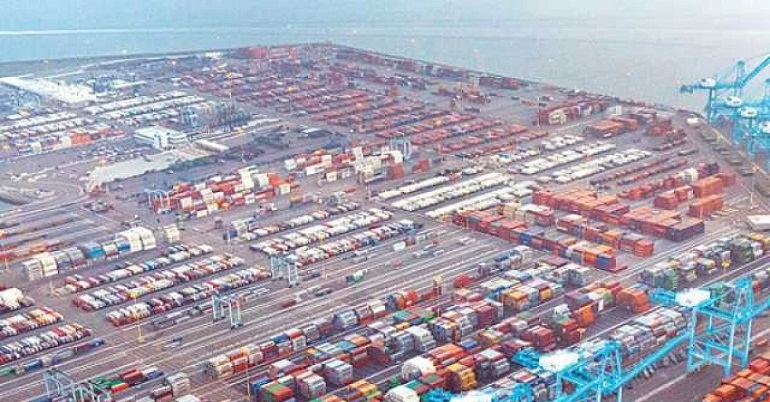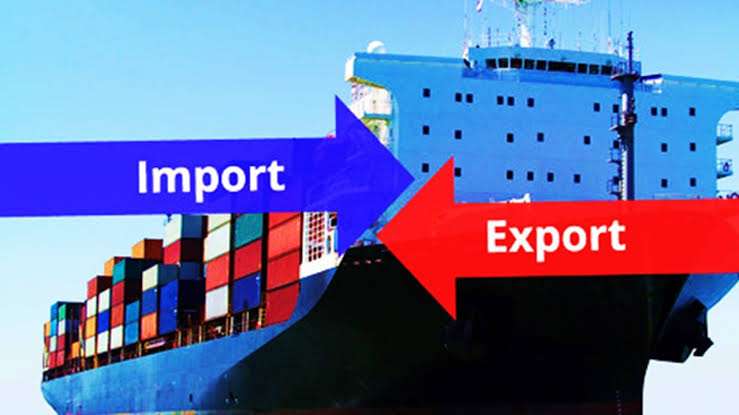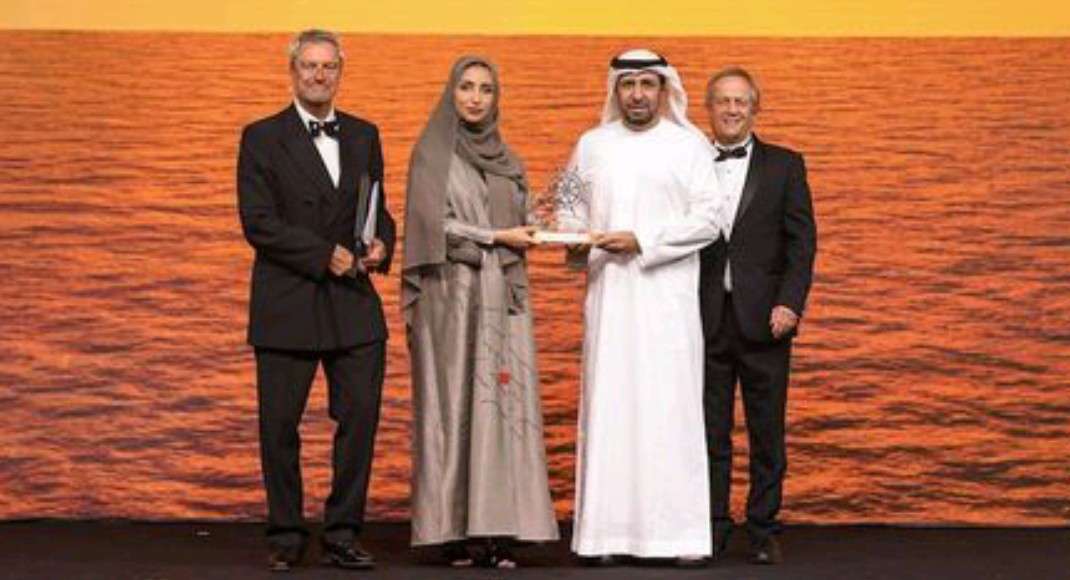Challenges In Implementation, Equitable Distribution Of Funds, And Its Impact On Small Domestic Players
Maritime News India : In a landmark move to bolster India’s maritime industry, Union Finance Minister Nirmala Sitharaman announced the establishment of a Maritime Development Fund (MDF) with a corpus of Rs 25,000 crore during her Budget 2025 speech in Parliament. This fund, aimed at providing long-term financing and promoting competition in the sector, will see 49% contribution from the government, with the remaining 51% mobilized from ports and the private sector.
The Union Budget 2025 has been hailed as a transformative blueprint for India’s maritime and logistics sectors, with industry leaders applauding its focus on infrastructure development, policy reforms, and workforce skilling. The budget’s emphasis on creating a resilient, efficient, and globally competitive supply chain ecosystem has been met with widespread optimism, as stakeholders anticipate a new era of growth and innovation. However, as stakeholders celebrate the potential of this budget, critical questions arise about its implementation, equitable distribution of funds, and its impact on small domestic players and the broader maritime industry.
Key Highlights of the Maritime Development Fund
-
Revamped Shipbuilding Financial Assistance Policy
To address cost disadvantages in shipbuilding, the government will revamp the Shipbuilding Financial Assistance Policy. This includes the introduction of Credit Notes for shipbreaking in Indian yards, promoting a circular economy and enhancing the competitiveness of domestic shipbreaking industries.
-
Inclusion of Large Ships in Infrastructure Harmonized Master List (HML)
Large ships above a specified size will be included in the Infrastructure Harmonized Master List (HML), making them eligible for infrastructure-related benefits and incentives.
-
Shipbuilding Clusters
The budget proposes the creation of Shipbuilding Clusters to increase the range, categories, and capacity of ships. These clusters will focus on developing additional infrastructure facilities, skilling, and technology to build a robust ecosystem for shipbuilding.
-
Extension of Customs Duty Exemptions
Recognizing the long gestation period of shipbuilding projects, the Finance Minister proposed to continue the exemption of Basic Customs Duty (BCD) on raw materials, components, consumables, and parts for ship manufacturing for another ten years. A similar dispensation was announced for shipbreaking to enhance its competitiveness.
Impact on the Maritime Industry
The Maritime Development Fund is expected to have a transformative impact on India’s maritime industry. By providing long-term financing, the fund will enable ports, shipbuilders, and logistics providers to invest in modernization, technology adoption, and capacity expansion.
For small and medium enterprises (SMEs), the fund presents an opportunity to access financial resources for upgrading infrastructure and adopting advanced technologies. The revamped Shipbuilding Financial Assistance Policy and the establishment of Shipbuilding Clusters will further level the playing field, enabling smaller players to compete with larger corporates.
Who Will Benefit?
The INR 25,000 crore Maritime Development Fund is poised to benefit a wide range of stakeholders, including large corporations, small and medium enterprises (SMEs), shipbuilders, port operators, and logistics providers. The fund aims to enhance financial stability and competitiveness for indigenous shipbuilding and infrastructure projects, encouraging private investments.
Large corporates, and other global logistics giants, are expected to leverage the fund for port modernization, technology adoption, and infrastructure expansion. Similarly, domestic shipbuilders and shipbreaking companies will benefit from the extension of Basic Customs Duty (BCD) exemptions on raw materials, reducing their dependency on imports and lowering production costs.
Small domestic companies, particularly those in the logistics and manufacturing sectors, stand to gain from the Bharat Trade Net initiative, which simplifies trade documentation and optimizes supply chains through data-driven decision-making. Additionally, the tonnage tax scheme for inland water transport will provide smaller players with a more sustainable and cost-effective mode of cargo movement.
Infrastructure Expansion and Policy Reforms: A Game-Changer

Rizwan Soomar, Chief Executive Officer and Managing Director of DP World Middle East North Africa and India Subcontinent, lauded the government’s commitment to maritime infrastructure development, domestic air connectivity, and the modernization of ports. “The INR 25,000 crore Maritime Development Fund is a landmark initiative that will enhance financial stability and competitiveness for indigenous shipbuilding and infrastructure projects,” he noted.
Soomar also highlighted the significance of the tonnage tax scheme for inland water transport, which promises a more sustainable and cost-effective mode of cargo movement. “The Bharat Trade Net, aimed at simplifying trade documentation, will optimize supply chains through data-driven decision-making, further boosting India’s trade efficiency,” he added.
The extension of Basic Customs Duty (BCD) exemption for raw materials in shipbuilding and shipbreaking was another critical measure, reducing dependency on imports and fostering self-reliance. “These reforms, coupled with streamlined export compliance procedures, will make Indian industries more competitive on the global stage,” Soomar emphasized.
Bridging the Skill Gap: A Call to Action

While the budget’s infrastructure and policy measures have been widely praised, Dr. Sathya Menon, Group CEO of Blue Ocean Corporation, a global leader in supply chain management training and consulting, underscored the need for targeted investments in workforce skilling. “The government’s commitment to strengthening domestic manufacturing capacity is commendable, but bridging the skill gap in the logistics sector is equally critical,” he stated.
Dr. Menon highlighted the importance of integrating AI-driven logistics solutions and advanced technologies into the sector. “Investments in technology and talent development will empower professionals to optimize supply chains, ensuring India’s position as a global supply chain leader,” he said.
The establishment of the Maritime Development Fund, according to Dr. Menon, is a vital step toward supporting the growth of India’s logistics and manufacturing sectors. “This initiative, combined with a focus on skilling, will position India as a key player on the world stage,” he added.
Challenges in Utilizing Funds Effectively
While the budget’s initiatives are commendable, the effective utilization of funds remains a significant challenge. Ensuring that the Maritime Development Fund is allocated transparently and equitably will require robust governance mechanisms. Historically, large corporates have often been the primary beneficiaries of such funds, leaving smaller players struggling to access financial support.
Dr. Sathya Menon, Group CEO of Blue Ocean Corporation, emphasized the need for a balanced approach. “While the fund is a vital step toward supporting the growth of India’s logistics and manufacturing sectors, it is crucial to ensure that SMEs and domestic players are not left behind. Bridging the skill gap and providing access to technology will be key to achieving this balance,” he said.
Risk of Fund Diversion to Big Corporates
One of the primary concerns is the potential diversion of funds to large corporates, sidelining smaller domestic companies. If this happens, it could exacerbate existing inequalities in the sector, limiting the growth of SMEs and stifling innovation. To prevent this, the government must establish clear guidelines and monitoring mechanisms to ensure that the fund benefits all stakeholders equitably.
Rizwan Soomar, Chief Executive Officer and Managing Director of DP World Middle East North Africa and India Subcontinent, acknowledged the importance of inclusive growth. “The budget sets the stage for India to emerge as a global maritime and logistics powerhouse, but its success will depend on how effectively we can ensure that the benefits reach all segments of the industry,” he said.
Short-Term and Long-Term Impacts on Small Domestic Companies
In the short term, small domestic companies may face challenges in accessing the Maritime Development Fund due to limited resources and bureaucratic hurdles. However, initiatives like the Bharat Trade Net and the tonnage tax scheme could provide immediate relief by reducing operational costs and improving efficiency.
In the long term, the fund has the potential to transform the fortunes of small domestic players by enabling them to invest in technology, infrastructure, and workforce skilling. If implemented effectively, it could level the playing field, allowing SMEs to compete with larger corporates and contribute significantly to India’s maritime and logistics sectors.
Strategic Roadmap for Small Domestic Companies
To fully capitalize on the opportunities presented by the Union Budget 2025, small domestic companies must adopt a proactive and strategic approach. Here are key strategies they can implement:
-
Leverage Government Schemes and Incentives
SMEs should actively explore and apply for benefits under the Maritime Development Fund, Bharat Trade Net, and tonnage tax scheme. Engaging with industry associations and government bodies can help them navigate the application process and secure funding.
-
Invest in Technology and Digital Transformation
Adopting AI-driven logistics solutions, automation, and data analytics will enable SMEs to optimize supply chains, reduce costs, and improve efficiency. Collaborating with tech providers or participating in government-led skilling programs can facilitate this transition.
-
Focus on Workforce Skilling
Investing in training programs to upskill employees in areas such as digital logistics, supply chain management, and sustainable practices will enhance competitiveness. Partnerships with training institutes like Blue Ocean Corporation can provide access to specialized programs.
-
Collaborate with Larger Players
Forming strategic alliances with larger corporates can help SMEs gain access to advanced technologies, infrastructure, and market opportunities. Such collaborations can also enhance their credibility and visibility in the industry.
-
Explore Inland Water Transport Opportunities
With the tonnage tax scheme making inland water transport more viable, SMEs should explore this mode for cargo movement. Investing in small-scale vessels or partnering with inland water operators can open new revenue streams.
-
Advocate for Equitable Fund Distribution
SMEs should collectively advocate for transparent and equitable distribution of the Maritime Development Fund. Engaging with policymakers and industry bodies can ensure their voices are heard and their needs addressed.
Impact on Indian Maritime Industry Stakeholders
The Union Budget 2025 is expected to have a far-reaching impact on Indian maritime industry stakeholders. Port operators will benefit from large-scale modernization projects, while shipbuilders and shipbreaking companies will gain from reduced production costs and increased competitiveness. Logistics providers, particularly those leveraging AI-driven solutions, will see improved efficiency and profitability.
For inland water transport operators, the tonnage tax scheme will provide a sustainable and cost-effective alternative to road and rail transport, reducing congestion and environmental impact. Additionally, the decision to share PM Gati Shakti data with private companies will drive investment and efficiency in infrastructure development, benefiting stakeholders across the board.
A Decisive Step Toward Global Leadership
The Union Budget 2025 has been widely recognized as a decisive step toward transitioning from ‘Make in India’ to ‘Make in India for the World.’ By leveraging infrastructure expansion, policy reforms, and human capital development, the government has laid the foundation for a more resilient, efficient, and competitive India.
As Soomar aptly summarized, “The budget sets the stage for India to emerge as a global maritime and logistics powerhouse, driving economic growth and creating a sustainable future for generations to come.”
However, the success of these initiatives will depend on their implementation. Ensuring equitable distribution of funds, addressing the skill gap, and fostering inclusive growth will be critical to realizing the full potential of the Union Budget 2025.
With visionary initiatives and a clear roadmap, the budget has not only addressed immediate challenges but also charted a course for long-term success in the maritime and logistics sectors. As India embarks on this transformative journey, the world watches with anticipation, recognizing the nation’s potential to redefine global supply chains and maritime trade.





One thought on “Union Budget 2025: A Maritime and Logistics Renaissance in the Making ?”